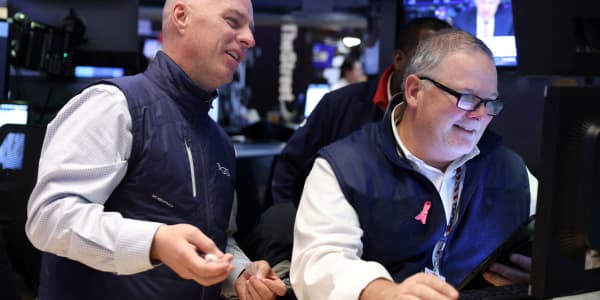Tom Lee of Fundstrat Global Advisors told clients Friday it was time to buy "FANG" stocks again, citing the tech bellwether's lesser exposure to wage inflation, dominant market positions and reasonable valuation.
"FANG" is a name popularized by CNBC's Jim Cramer for Facebook, Amazon, Netflix and Google-parent Alphabet as the stocks started to outperform the market by a large magnitude in 2013. They trailed the last year however.
"We are recommending investors overweight FANG in 2017, reversing our 'avoid call' made in late-2015," wrote Lee, head of research, in a note. "FANG is essentially the 'Blue chip' of internet/cloud names."
Lee was one of the few Wall Street strategists who predicted the market would rally on a Donald Trump election win. After he was correctly one of the most bullish strategists on Wall Street last year, he turned heads in January by becoming the most bearish, slapping a price target of 2,275 on the S&P 500, below where it is now.
The strategist believes FANG stocks' high market values versus the number of employees makes them particularly attractive to investors looking for companies that can better deal with rising wage inflation.
Lee also doesn't think the stocks have gotten enough credit for their outsized contribution to the market's overall revenue and earnings pie since 2012.
FANG has been "de-rated against the broader market—its PE is about the same at 28X while the S&P 500 has seen a 31% rise in its PE to 18X" since 2012, wrote Lee.
Lee recommends clients start looking at FANG as its own sector of the market, noting that the combined companies have a market value of $1.3 trillion, which would actually make the group the eighth largest industry group in the S&P 500, ahead of utilities, real estate, basic materials and telecom services.
"Because of the sheer market value impact of these 4 stocks, FANG makes sense to look as a stand-alone sector," said Lee.
Along with the original FANG, the strategist believes investors should own stocks with similar characteristics.





